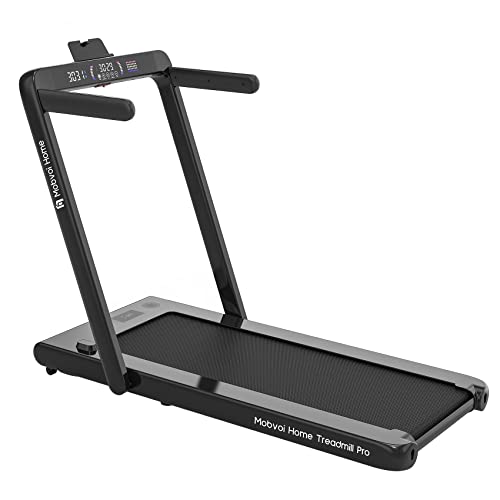8 Tips To Improve Your Walking Machine Game
The Walking Machine: A Comprehensive Guide to Your Fitness Companion
In today's busy world, where time is a high-end, keeping a consistent workout regimen can be a difficulty. For numerous, a walking machine— typically referred to as a treadmill— functions as an ideal fitness buddy. This post offers an extensive look at walking machines, including their benefits, types, maintenance suggestions, and often asked questions.
Why Choose a Walking Machine?
Walking machines use a useful and effective method to incorporate cardiovascular workout into every day life. Here are numerous essential advantages:
- Convenience: Walking machines permit people to work out anytime, no matter weather condition conditions or time restrictions. They are ideal for hectic schedules.
- Versatility: Users can stroll, jog, or perform at their own speed and intensity.
- Security: Walking machines provide a lower risk of injury compared to outside walking or running, especially for newbies or those recuperating from injuries.
- Tracking Progress: Many treadmills featured built-in displays that track metrics like speed, range, and calories burned.
Kinds Of Walking Machines
When considering a walking machine, it's important to choose the best type based upon individual fitness goals and space constraints. Below are the main kinds of walking machines:
Type
Description
Handbook Treadmills
These machines do not have a motor, and users require to stroll or run to rotate the belt.
Electric Treadmills
Powered by an electric motor, enabling users to set the speed and slope easily.
Folding Treadmills
Designed for simple storage, these treadmills can be folded when not in usage.
Desk Treadmills
Suitable for a double work and workout environment, these compact machines allow walking while working.
Slope Trainers
These permit users to mimic uphill walking, improving exercise intensity and calorie burn.
Choosing the Right Walking Machine
Selecting the right walking machine can significantly affect inspiration and effectiveness. Here are some factors to consider:
Key Features to Look For
- Motor Power: A powerful motor makes sure a smooth and constant exercise. For occasional walkers, a 1.5 HP motor is typically enough; for much heavier use, search for 3.0 HP and above.
- Belt Size: A broader and longer belt provides more area for a comfortable stride. Standard sizes vary from 16 inches wide and 50 inches long.
- Slope Options: Adjustable incline settings can simulate walking or running uphill, increasing the strength of the workout.
- Shock Absorption: Good shock absorption decreases the threat of joint injuries and improves convenience.
- Console Features: Look for built-in exercises, heart rate displays, and connectivity features like Bluetooth for a more appealing experience.
Spending plan Considerations
Walking machines come in a vast array of prices, depending on functions and building and construction quality. Here's a rough budget breakdown:
Price Range
Features
Under ₤ 300
Fundamental handbook or small electric treadmills with limited features.
₤ 300 – ₤ 700
More innovative electric treadmills with slope, medium power motors, and better guarantees.
₤ 700 – ₤ 1500
High-quality electric treadmills with larger integrated screens, substantial functions, and warranties.
₤ 1500 and above
High-end models offering sophisticated innovation, functions, and resilient building for major fitness lovers.
Upkeep Tips for Your Walking Machine
To guarantee longevity and optimal efficiency of a walking machine, consider the following maintenance pointers:
- Regular Cleaning: Dust and sweat can build up on the machine and the belt. Clean down the surfaces and tidy the belt regularly.
- Lubrication: Depending on the model, oiling the running belt regularly can prevent wear and tear. Cheap Treadmills for advised lubrication schedules.
- Inspection: Periodically examine the machine for loose screws or worn parts. Tighten up and replace as needed.
- Calibration: Occasionally, examine the calibration of your machine's metrics to ensure they supply precise data.
- Appropriate Use: Follow the producer's recommendations for weight limitations and functional standards.
Frequently Asked Questions About Walking Machines
1. Are walking machines a great workout?
Yes, walking machines supply an excellent cardiovascular workout, can assist with weight loss, and enhance total health.
2. How typically should I use a walking machine?
Go for a minimum of 150 minutes of moderate-intensity aerobic activity weekly, which can easily be accomplished with routine sessions on a walking machine.
3. Can I reduce weight on a walking machine?
Yes, integrating a walking machine routine into a healthy diet plan can promote weight reduction, particularly if integrated with periods and incline training.
4. Is it safe for elders to utilize a walking machine?
Yes, walking machines can be safe for senior citizens with low-impact settings and security features like handrails. However, individuals must speak with their health care service provider before starting any workout program.
5. What's the distinction between a treadmill and a walking machine?
The term “walking machine” generally refers to a treadmill intended for walking, while “treadmill” can refer to machines utilized for different strengths, including running.
With their flexibility and benefit, walking machines can considerably boost one's physical fitness journey. By thoroughly picking the best type, making sure correct upkeep, and integrating different exercise strategies, users can maximize their walking machine's advantages. As with any exercise regimen, consistency is key to achieving long lasting physical fitness outcomes.
